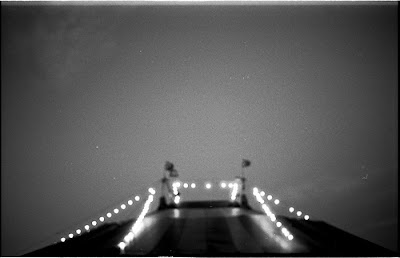
Let's say tomorrow I wake up and go to work to give my lab meeting seminar, wearing a T-shirt like this one. What will the reaction be? Some may look interested, others might congratulate me for making a statement, there will be the ones who will find it a bit irritating. Will anyone care to fine me with 3000 euros? I guess not.
Nonetheless, this is what happened to Frederic Kanoute, FC Sevilla's striker for showing off his T-shirt after scoring a goal against Deportivo La Coruna in last Wednesday's Spanish Cup game. Even worse, Kanoute just escaped a fine of 30.000 euros since the message on his shirt (reading the word "Palestine" in multiple languages) "bore no direct references to violence"! It seems absurd that such a penalty comes directly from the penal code of the Spanish Football Federation in accord with the one set by UEFA. T-shirts with political messages are strictly forbidden, and of late even players taking off their shirts in celebrations are to be shown a yellow card. Such is the mind of people who run world football nowadays.
It seems that according to them, football players are only to score silent goals, they are to keep their opinions to themselves and they are to be severely punished if they choose to defy the shameful "omerta" that fines a T-shirt reading "Palestine" as much as tens of fans firing flares against the visitor crowd (it happened in Espanyol-Barcelona last October). The reasoning is as simplistic as is false. Football players, they tell us, as all athletes, are role models for young people. Their image comes in every home through TV. They simply cannot be allowed to transmit messages of any sort. What they don't tell us is that it is perfectly normal to transmit a number of messages, ALL strangely related to buying sponsored products, during the same football games, while the players are to perform silently and in accord with carefully spelled out instructions. Neither do they tell us that the TV broadcasting of football games is by far the greatest source of profit of all footballing federations on the planet and that on top of making millions out of the football players' efforts they claim the right of dictating their "politically correct" behaviour.
But should it be this way? Would you keep working for someone who would fine you if you wore a T-shirt with a political message? And what limits are there to freedom of speech? Is "Fight global warming" acceptable and "Kill all hippies" punishable? It just seems unfair to me that football players are free to wear T-shirts that read "Jesus Saves" but a message like "Save the people of Palestine" gets a fine of 30.000 euros!
But UEFA's bright minds should have known better. And as football fans throughout the world are something more than numb morons destined to buy PlayStations and Heineken six-packs, over the last two weeks, messages like "Free Palestine" and "Stop the War" have been appearring more and more often among the crowds in all great European stadia. It looks like we, football-"consumers", have already been contaminated by dissident voices like Kanoute's.
Or perhaps, we have never needed to.








